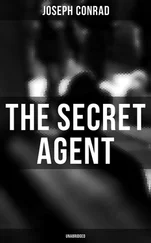Joseph Conrad - Within the Tides - Tales
Здесь есть возможность читать онлайн «Joseph Conrad - Within the Tides - Tales» весь текст электронной книги совершенно бесплатно (целиком полную версию без сокращений). В некоторых случаях можно слушать аудио, скачать через торрент в формате fb2 и присутствует краткое содержание. Год выпуска: 1997, Жанр: Старинная литература, на английском языке. Описание произведения, (предисловие) а так же отзывы посетителей доступны на портале библиотеки ЛибКат.
- Название:Within the Tides: Tales
- Автор:
- Жанр:
- Год:1997
- ISBN:нет данных
- Рейтинг книги:4 / 5. Голосов: 1
-
Избранное:Добавить в избранное
- Отзывы:
-
Ваша оценка:
- 80
- 1
- 2
- 3
- 4
- 5
Within the Tides: Tales: краткое содержание, описание и аннотация
Предлагаем к чтению аннотацию, описание, краткое содержание или предисловие (зависит от того, что написал сам автор книги «Within the Tides: Tales»). Если вы не нашли необходимую информацию о книге — напишите в комментариях, мы постараемся отыскать её.
are linked by Conrad's treatment of loyalty and betrayal. They range in setting from the Far East via eighteenth-century Spain to England. The tone shifts from the tragic inevitability of
and the pathos of
to the gothic
and the grim humour of
. The form of the stories was experimental but does not obscure Conrad's humanity or his search for moral truth.
Within the Tides: Tales — читать онлайн бесплатно полную книгу (весь текст) целиком
Ниже представлен текст книги, разбитый по страницам. Система сохранения места последней прочитанной страницы, позволяет с удобством читать онлайн бесплатно книгу «Within the Tides: Tales», без необходимости каждый раз заново искать на чём Вы остановились. Поставьте закладку, и сможете в любой момент перейти на страницу, на которой закончили чтение.
Интервал:
Закладка:
He landed with one leap in the middle of the floor, gasped once, then looked all round the room. The window was shuttered and barred with an iron bar. Again he ran his eyes slowly all round the bare walls, and even looked up at the ceiling, which was rather high. Afterwards he went to the door to examine the fastenings. They consisted of two enormous iron bolts sliding into holes made in the wall; and as the corridor outside was too narrow to admit of any battering arrangement or even to permit an axe to be swung, nothing could burst the door open—unless gunpowder. But while he was still making sure that the lower bolt was pushed well home, he received the impression of somebody’s presence in the room. It was so strong that he spun round quicker than lightning. There was no one. Who could there be? And yet . . .
It was then that he lost the decorum and restraint a man keeps up for his own sake. He got down on his hands and knees, with the lamp on the floor, to look under the bed, like a silly girl. He saw a lot of dust and nothing else. He got up, his cheeks burning, and walked about discontented with his own behaviour and unreasonably angry with Tom for not leaving him alone. The words: “Mr. Byrne! Look out, sir,” kept on repeating themselves in his head in a tone of warning.
“Hadn’t I better just throw myself on the bed and try to go to sleep,” he asked himself. But his eyes fell on the tall wardrobe, and he went towards it feeling irritated with himself and yet unable to desist. How he could explain to-morrow the burglarious misdeed to the two odious witches he had no idea. Nevertheless he inserted the point of his hanger between the two halves of the door and tried to prize them open. They resisted. He swore, sticking now hotly to his purpose. His mutter: “I hope you will be satisfied, confound you,” was addressed to the absent Tom. Just then the doors gave way and flew open.
He was there.
He—the trusty, sagacious, and courageous Tom was there, drawn up shadowy and stiff, in a prudent silence, which his wide-open eyes by their fixed gleam seemed to command Byrne to respect. But Byrne was too startled to make a sound. Amazed, he stepped back a little—and on the instant the seaman flung himself forward headlong as if to clasp his officer round the neck. Instinctively Byrne put out his faltering arms; he felt the horrible rigidity of the body and then the coldness of death as their heads knocked together and their faces came into contact. They reeled, Byrne hugging Tom close to his breast in order not to let him fall with a crash. He had just strength enough to lower the awful burden gently to the floor—then his head swam, his legs gave way, and he sank on his knees, leaning over the body with his hands resting on the breast of that man once full of generous life, and now as insensible as a stone.
“Dead! my poor Tom, dead,” he repeated mentally. The light of the lamp standing near the edge of the table fell from above straight on the stony empty stare of these eyes which naturally had a mobile and merry expression.
Byrne turned his own away from them. Tom’s black silk neckerchief was not knotted on his breast. It was gone. The murderers had also taken off his shoes and stockings. And noticing this spoliation, the exposed throat, the bare up-turned feet, Byrne felt his eyes run full of tears. In other respects the seaman was fully dressed; neither was his clothing disarranged as it must have been in a violent struggle. Only his checked shirt had been pulled a little out the waistband in one place, just enough to ascertain whether he had a money belt fastened round his body. Byrne began to sob into his handkerchief.
It was a nervous outburst which passed off quickly. Remaining on his knees he contemplated sadly the athletic body of as fine a seaman as ever had drawn a cutlass, laid a gun, or passed the weather earring in a gale, lying stiff and cold, his cheery, fearless spirit departed—perhaps turning to him, his boy chum, to his ship out there rolling on the grey seas off an iron-bound coast, at the very moment of its flight.
He perceived that the six brass buttons of Tom’s jacket had been cut off. He shuddered at the notion of the two miserable and repulsive witches busying themselves ghoulishly about the defenceless body of his friend. Cut off. Perhaps with the same knife which . . . The head of one trembled; the other was bent double, and their eyes were red and bleared, their infamous claws unsteady. . . It must have been in this very room too, for Tom could not have been killed in the open and brought in here afterwards. Of that Byrne was certain. Yet those devilish crones could not have killed him themselves even by taking him unawares—and Tom would be always on his guard of course. Tom was a very wide awake wary man when engaged on any service. . . And in fact how did they murder him? Who did? In what way?
Byrne jumped up, snatched the lamp off the table, and stooped swiftly over the body. The light revealed on the clothing no stain, no trace, no spot of blood anywhere. Byrne’s hands began to shake so that he had to set the lamp on the floor and turn away his head in order to recover from this agitation.
Then he began to explore that cold, still, and rigid body for a stab, a gunshot wound, for the trace of some killing blow. He felt all over the skull anxiously. It was whole. He slipped his hand under the neck. It was unbroken. With terrified eyes he peered close under the chin and saw no marks of strangulation on the throat.
There were no signs anywhere. He was just dead.
Impulsively Byrne got away from the body as if the mystery of an incomprehensible death had changed his pity into suspicion and dread. The lamp on the floor near the set, still face of the seaman showed it staring at the ceiling as if despairingly. In the circle of light Byrne saw by the undisturbed patches of thick dust on the floor that there had been no struggle in that room. “He has died outside,” he thought. Yes, outside in that narrow corridor, where there was hardly room to turn, the mysterious death had come to his poor dear Tom. The impulse of snatching up his pistols and rushing out of the room abandoned Byrne suddenly. For Tom, too, had been armed—with just such powerless weapons as he himself possessed—pistols, a cutlass! And Tom had died a nameless death, by incomprehensible means.
A new thought came to Byrne. That stranger knocking at the door and fleeing so swiftly at his appearance had come there to remove the body. Aha! That was the guide the withered witch had promised would show the English officer the shortest way of rejoining his man. A promise, he saw it now, of dreadful import. He who had knocked would have two bodies to deal with. Man and officer would go forth from the house together. For Byrne was certain now that he would have to die before the morning—and in the same mysterious manner, leaving behind him an unmarked body.
The sight of a smashed head, of a throat cut, of a gaping gunshot wound, would have been an inexpressible relief. It would have soothed all his fears. His soul cried within him to that dead man whom he had never found wanting in danger. “Why don’t you tell me what I am to look for, Tom? Why don’t you?” But in rigid immobility, extended on his back, he seemed to preserve an austere silence, as if disdaining in the finality of his awful knowledge to hold converse with the living.
Suddenly Byrne flung himself on his knees by the side of the body, and dry-eyed, fierce, opened the shirt wide on the breast, as if to tear the secret forcibly from that cold heart which had been so loyal to him in life! Nothing! Nothing! He raised the lamp, and all the sign vouchsafed to him by that face which used to be so kindly in expression was a small bruise on the forehead—the least thing, a mere mark. The skin even was not broken. He stared at it a long time as if lost in a dreadful dream. Then he observed that Tom’s hands were clenched as though he had fallen facing somebody in a fight with fists. His knuckles, on closer view, appeared somewhat abraded. Both hands.
Читать дальшеИнтервал:
Закладка:
Похожие книги на «Within the Tides: Tales»
Представляем Вашему вниманию похожие книги на «Within the Tides: Tales» списком для выбора. Мы отобрали схожую по названию и смыслу литературу в надежде предоставить читателям больше вариантов отыскать новые, интересные, ещё непрочитанные произведения.
Обсуждение, отзывы о книге «Within the Tides: Tales» и просто собственные мнения читателей. Оставьте ваши комментарии, напишите, что Вы думаете о произведении, его смысле или главных героях. Укажите что конкретно понравилось, а что нет, и почему Вы так считаете.












